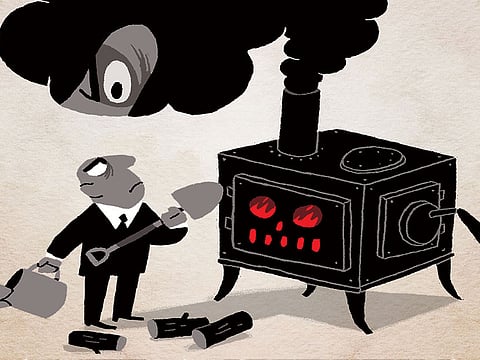Fight against Daesh needs fresh thinking
The rhetoric of western leaders is a long way from an anti-Daesh strategy

Around the time this column hits readers’ breakfast tables on Wednesday morning, Dubai time, US President Barack Obama will have just finished his annual State of the Union address in Washington DC. It is fair to assume that he will mention Daesh (Islamic State of Iraq and the Levant). It is also pretty certain that the Middle East is not going to be the centrepiece of the speech (taxes are likely to occupy that position), but with US warplanes bombing Daesh targets in northern Syria and the US military headed back to the region to help train Iraq’s army, it is a topic that cannot be avoided.
America’s policy, as laid out by Obama in a speech last September, is to “degrade and destroy” Daesh, but as the months have gone by, it has become increasingly clear that “degrade and destroy” remains more a slogan than a plan.
The question, however, is not so much whether “degrade and destroy” is the right strategy as whether any military strategy can really be effective against groups like Daesh. If the last 13 years have taught America anything it ought to be that armies are poor tools when it comes to fighting ideologies in general and ideologies born of political despair and oppression in particular. The rhetoric of Obama and other western leaders is all well and good, but it is a long way from there to an anti-Daesh strategy that is both militarily and economically feasible; one that can be implemented in the real world of coalition politics involving the US, United Kingdom, France, the United Nations and various Arab countries, among others (which is to say nothing of the domestic political concerns raised in any or all of these nations by military action abroad).
The problem for Obama, Britain’s Prime Minister David Cameron, France’s President Francois Hollande and many other world leaders is that they are caught in a trap first built by George W. Bush in the days after 9/11, but expanded and maintained by many others in the years that followed. This is the belief that the only way to deal with terror is to destroy it, despite the fact that terror, broadly defined, has been with the world since time immemorial and that declaring ‘war’ on it will do today’s leaders no more good than it did the imperial British or, for that matter, the Romans.
In an odd irony of modern political history the person who may have best expressed this is US Secretary of State John Kerry. When he was running for president in 2004, Kerry, then a long-serving senator, was confronted with an America still deeply in shock three years after the 9/11 attacks. In an interview with the New York Times, published less than a month before Election Day, he sought to calm those fears by rejecting Bush’s Manichean view of the world.
“We have to get back to a place where terrorists are not the focus of our lives, but they’re a nuisance,” Kerry had said. He went on to explain that, as a former prosecutor, he understood that crime can never be completely ended but it can be contained — reduced “to a level where it isn’t on the rise. It isn’t threatening people’s lives every day and fundamentally, it’s something that you continue to fight, but it’s not something threatening the fabric of your life.” The same logic, he said, should be applied to terrorism.
As a policy, this is difficult to argue with. As politics, it was a disaster.
Translated into the language of political attack ads, it became a claim that Kerry saw terror only as a “nuisance” in contrast, of course, to Bush who recognised it as the existential threat to American life. In any genuinely close election (and Bush’s 2004 victory over Kerry was far narrower than either of Obama’s two presidential wins) it is always difficult to put one’s finger on any single moment that sealed the fate of the losing candidate, but Kerry’s New York Times interview has to be on any short-list of contenders.
Yet, it touched on a truth that, even today, is often forgotten: Just because things frighten us — even if they frighten us legitimately — that does not necessarily make them a threat to everything we hold dear. Because none of us can eliminate fear from our lives, the question should not be how to conquer it, but, rather, how to manage it; how to keep it within reasonable bounds. “Degrade and Destroy” is a fine slogan for a presidential speech, but it is far from a practical policy. Daesh can easily be degraded, but the mindset that drives it cannot be destroyed — not, at least, with the resources America and its allies are realistically willing to commit today or anytime soon.
The real question is when political rhetoric is going to catch up with observable reality.
Gordon Robison, a longtime Middle East journalist and US political analyst, teaches political science at the University of Vermont.



